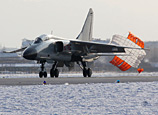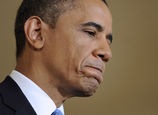
BEIJING, Jan. 23 (Xinhua) -- The UN Security Council passed a resolution on Tuesday, condemning the satellite launch by the Democratic People's Republic of Korea (DPRK) last month and urging a peaceful settlement of the Korean Peninsula's nuclear issue.
It is a clear response to Pyongyang's violation of Security Council resolutions, which the DPRK as a UN member should abide by.
Although every state is entitled to the peaceful use of outer space, Pyongyang's right is currently restrained by relevant UN Security Council resolutions, including Resolution 1874, which demands the DPRK not conduct "any launch using ballistic missile technology" and urges it to "suspend all activities related to its ballistic missile program."
However, sanctions and pressure have proved insufficient in helping relevant parties work out a compromise.
The ultimate way to restore lasting peace and stability on the Korean Peninsula is to build trust among key parties through dialogue and consultation.
Though all relevant parties share a common aspiration to see a peaceful Korean Peninsula free of nuclear weapons, the distrust between the DPRK and the Republic of Korea (ROK), the U.S. and Japan poses the biggest obstacle.
Due to the complexity of the crisis and the deep-rooted hostility among certain parties, trust-building is easier said than done, but the first thing they can do is to refrain from doing anything that may escalate tensions. Any tit-for-tat strategy would be detrimental and even dangerous.
By avoiding provocative actions, relevant parties could lay the ground for meaningful dialogues.
It is worth noting that the long-stalled six-party talks remain the most viable platform for dialogue.
As the situation on the Korean Peninsula comes to a crossroad, it is high time for the six relevant countries, namely, the DPRK, the ROK, the U.S., Japan, China and Russia, to return to the negotiating table.
China, as a neighbor of the DPRK and the ROK, has long declared its intention to work for a peaceful solution and has played a constructive role in facilitating the six-party talks.
However, the resumption of the six-party talks needs concerted efforts of all relevant parties to create favorable conditions and avoid further complications.
















 Beijing style: Duck, opera, fog and cough...
Beijing style: Duck, opera, fog and cough...


![]()
